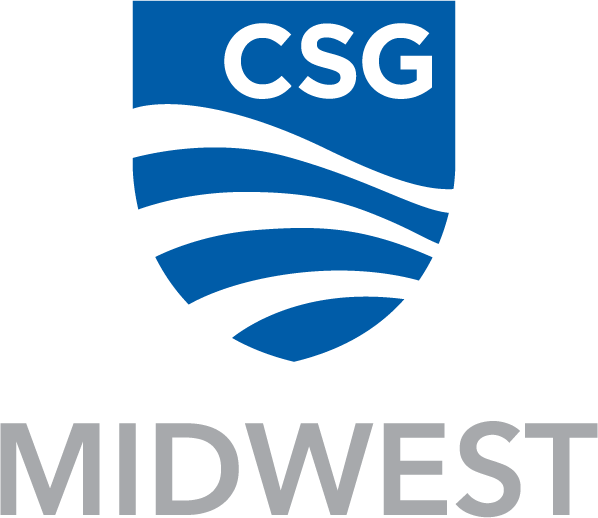Annual Meeting Brings New Leaders, New Opportunities to Caucus of Great Lakes Legislators
LOMBARD, IL — During the final session of its “Virtual” Annual Meeting on October 9, the binational, nonpartisan Great Lakes-St. Lawrence Legislative Caucus (GLLC) took major steps forward by electing new leaders and adopting a policy goal of helping coastal communities become more climate resilient.
Members who met via Zoom elected Illinois Representative Robyn Gabel to lead the Caucus as Chair in 2021-22. Minnesota Representative Jennifer Schultz was elected to the position of Vice Chair.
“I’m honored that my fellow GLLC members selected me to lead the Caucus,” said Representative Gabel. “We have an important mission: to take coordinated regional action to assure that the Great Lakes and St. Lawrence River continue to provide a plentiful source of clean, safe, affordable water to the residents, businesses, and industries that depend upon them. I’m excited to have the opportunity to advance this mission over the next two years.”
Outgoing chair Indiana Senator Ed Charbonneau will complete his term on December 31. Of Representative Gabel’s election, Senator Charbonneau said, “What an absolutely fantastic development for the Caucus. The GLLC really has come far as an organization over the past few years. I have no doubt that Representative Gabel’s leadership will take us even farther.”
The Caucus also elected members to serve in 2021-22 on the GLLC Executive Committee. All 10 jurisdictions – Illinois, Indiana, Michigan, Minnesota, New York, Ohio, Ontario, Pennsylvania, Québec, and Wisconsin – are represented on the committee, which directs the GLLC’s activities.
Members also adopted several resolutions calling on state/provincial and national leaders to address topics of concern including emerging contaminants and coal-based tar sealcoats and other polycyclic aromatic hydrocarbon (PAH)-based pavement sealants, the danger to Lake Superior posed by sulfide-ore copper mining in the St. Louis River watershed, continued (U.S.) federal funding for the Great Lakes Restoration Initiative, and other topics:
- Creation of a (U.S.) federal rate relief programs for low-income water and wastewater customers, akin to the existing Low-Income Home Energy Assistance Program (LIHEAP) program for energy customers, due to the COVID-19 pandemic.
- Recommending that the U.S. Congress lift the volume cap on private activity bonds as a method of funding water infrastructure projects.
- Calling on the U.S. Environmental Protection Agency to set a national Maximum Contaminant Level for PFOS and PFOA chemicals in drinking water and to convene a national task force to study their mitigation.
The members also approved a resolution thanking and honoring Senator Charbonneau for his years of service to the Caucus. In 2021-2022, Senator Charbonneau will continue to serve ex officio on the GLLC Executive Committee as a past chair.
The Caucus also chose the focus for the 2021 Patricia Birkholz Institute for Great Lakes-St. Lawrence Policy: helping coastal communities to become more climate resilient. The purpose of the institute is to bring together a select group of GLLC members to examine a single issue and create a plan for region-wide action to address the issue by coordinating on new policies. The institute is named in honor of the GLLC’s founder, the late Senator Patty Birkholz of Michigan.
The focus for the initial, pilot institute was the elimination of lead as a contaminant in drinking water. Members in 2018 adopted a resolution committing the Caucus to “collaborate regionally on policy measures in the Great Lakes states and provinces to reduce lead in drinking water in order to reduce the population’s exposure to and contamination from lead.” Last month, the Caucus’ Task Force on Lead released a Model Policy for state and provincial legislators addressing lead removal and mitigation. The task force will sunset this year, having completed its two-year workplan.
In 2019, the Birkholz Institute focused on nutrient pollution; the Caucus’ Task Force on Nutrient Management, chaired by Wisconsin Senator André Jacque, will continue working in 2021.
The mission of the GLLC is to take the best science-based recommendations from studies and put them into practice in the eight states and two provinces that share the Great Lakes and St. Lawrence River. Through its mix of programming, advocacy, and other activities, the Caucus provides a forum for the regional exchange of ideas and information on key issues that impact the Great Lakes and St. Lawrence River. Membership in the nonpartisan caucus is open to all state and provincial legislators in the eight states and two provinces that share the Great Lakes-St. Lawrence basin.
Recordings of, and briefing materials for, all four sessions of the Caucus’s 2020 “Virtual” Annual Meeting can be viewed at https://gllc.csgmidwest.org/2020-virtual-meetings/.
The Council of State Governments Midwestern Office supports and provides staffing services for the Caucus, which is funded in part by grants from The Joyce Foundation, the Fred A. and Barbara M. Erb Family Foundation, and the Charles Stewart Mott Foundation. CSG is a nonprofit, nonpartisan association serving all three branches of state government. As part of its services for GLLC members, CSG Midwest maintains a legislative tracker, available at www.gllc.csgmidwest.org, that monitors bills being considered in state and provincial capitols.
For more information about the Caucus or the 2020 Annual Meeting, please contact Lisa Janairo at ljanairo@csg.org or 920.458.5910, or visit www.gllc.csgmidwest.org.

